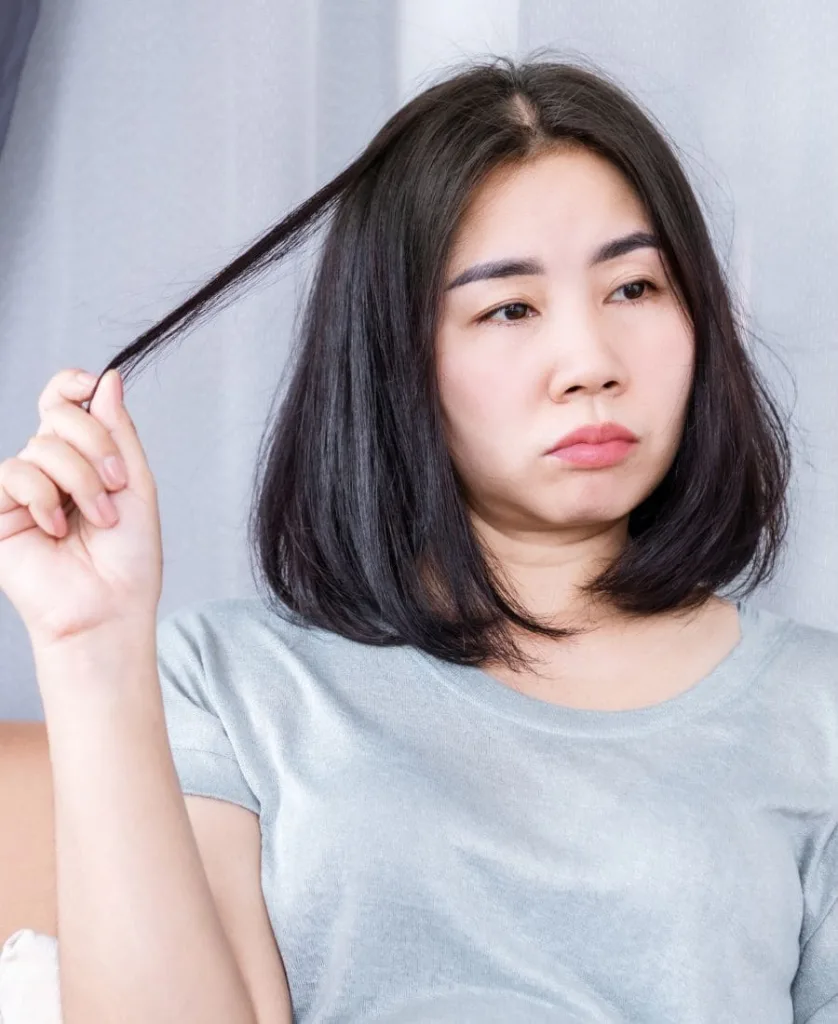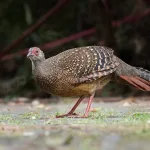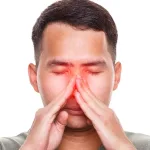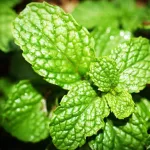Hair has long been regarded as a significant element in the fabric of spiritual beliefs and cultural practices across the world.
In many traditions, hair is more than just a physical attribute; it embodies personal and spiritual identity, acting as a conduit for sacred energy.
For instance, numerous indigenous societies, including Native American cultures, see hair as a source of spiritual power and a means of connecting to their ancestors and the natural world.
When it comes to the act of hair pulling, known medically as trichotillomania, the behavior extends beyond a physiological impulse control disorder and enters the realm of spiritual significance.
The deliberate act of removing one’s hair can be interpreted in various spiritual circles as an outward manifestation of an inner desire to understand and manipulate one’s own spiritual journey.
It may be viewed as a signal from the subconscious to address emotional distress or as a part of a ritual to shed past burdens and emerge into a new phase of spiritual growth.
The spiritual meaning of hair pulling also varies depending on the context. In some beliefs, it might symbolize the release of energy, while in others, it could serve as a physical representation of an internal struggle.
The spiritual interpretation is often deeply personal, with individuals finding their own meaning in the action based on their circumstances and beliefs.
Cultural and Spiritual Significance of Hair

The link between hair and the spiritual realm has been recognized across various cultures and religions, often symbolizing deeper philosophical and mystical elements associated to human identity and personal power.
Historical Context
Native American Cultures: In many Native American tribes, hair is respected as a connection to the Earth and the spiritual world. It is believed to carry the thoughts and spiritual character of the individual.
Ancient Egypt: The ancient Egyptians regarded hair as a source of spiritual and physical strength.
Pharaohs wore elaborate headdresses to convey their divine status, and even in death, they were depicted with meticulously stylized hair, which signified their perpetual dignity and spiritual potency.
Hinduism: Hair has significant religious implications in Hinduism. Sadhus, or holy men, may wear their hair in long dreadlocks, called jatas, which symbolize spiritual neglect of the vain and material world in pursuit of spiritual growth.
Sikhism: Sikhs maintain uncut hair, known as Kesh, which is a key tenet of their faith symbolizing acceptance of God’s will, spirituality, and respect for the perfection of God’s creation.
Symbolism and Beliefs
Samson and Delilah: In the biblical narrative of Samson and Delilah, hair is directly associated with strength. Samson’s long hair was the source of his prodigious strength, which he lost after Delilah deceitfully had it cut.
Symbolism: Throughout history, hair has often been imbued with symbolism ranging from power and freedom to social and marital status.
In spiritual traditions, it is frequently a symbol of one’s connection to the divine or as a covering that protects and contains one’s spiritual energy.
Spiritual Traditions: Within spiritual traditions, hair can be seen as a repository of one’s vital essence.
This is why in some cultures, the cutting of hair is often accompanied by rituals or ceremonies to mark important life transitions or spiritual milestones.
Read too: Spiritual Meaning Of Braiding Hair: 7 Warnings From Heaven
Psychological and Emotional Implications of Hair Pulling
The practice of hair pulling, clinically recognized as trichotillomania, carries significant psychological burdens and can often arise from or contribute to emotional stress and trauma.
Understanding Trichotillomania
Trichotillomania is an impulse control disorder where a person feels compelled to pull out their own hair.
This may happen as a response to feelings of anxiety or tension. The act of pulling hair serves as a temporary relief from these feelings, but this relief often exacerbates feelings of shame and depression in a cyclical pattern.
- Prevalence: Mostly affects women in adulthood.
- Symptoms: Repeatedly pulling out hair, leading to noticeable hair loss.
- Stress Factor: The act may intensify during periods of increased stress.
Emotional Trauma and Coping
Emotional trauma, often a root cause for hair-pulling behaviors, can stem from various stressors in an individual’s life.
Hair pulling serves as a coping mechanism to regain a sense of control when feeling overwhelmed by fear or trauma.
- Coping Mechanism: Individuals may not be conscious of pulling their hair during episodes.
- Mindfulness: Techniques such as mindfulness can aid in decreasing the compulsion by fostering awareness and reducing stress levels.
While trichotillomania is a complex issue involving aspects of both mental health and emotional well-being, it is treatable through approaches like cognitive behavioral therapy, which helps individuals learn more effective coping strategies.
If you are enjoying reading this, you will definitely enjoy reading Finding Hair Everywhere Spiritual Meaning (Explained)
Hair Health and Spiritual Energy

Hair is often viewed as a reflection of one’s internal health and spiritual state. The vitality of one’s hair can be indicative of both physical well-being and the flow of spiritual energy.
Physical and Energetic Properties of Hair
Hair serves as a tangible extension of the body, often seen as a conduit for spiritual energy.
It is composed of keratin, a robust protein that requires adequate nutrition, including vitamins like biotin, niacin, and vitamin E, as well as minerals such as zinc and iron to maintain its health.
Theoretically, healthier hair may correlate with a brighter energetic aura, potentially enhancing one’s vitality and spiritual presence.
Practices for Maintaining Vibrant Hair
Nutrition: A balanced diet rich in omega-3 fatty acids, proteins, and antioxidants is crucial for fostering both hair health and vitality.
- Foods to Include:
- Salmon, flaxseeds (Omega-3s)
- Eggs, berries (Antioxidants)
- Spinach, lentils (Iron)
- Nuts, seeds (Vitamins and Minerals)
- Foods to Include:
-
Energy Healing Techniques: Certain energy healing practices, such as Reiki, acupuncture, or even meditative practices, may influence the vibrancy of one’s hair by promoting the free flow of spiritual energy through the body.
These methods can aim to balance internal energies, purportedly affecting hair health indirectly through overall wellness improvements.
Maintaining hair health involves a blend of proper nutrition and potential energetic practices, reflecting the interconnectedness of physical and spiritual well-being.
Personal Growth and Spiritual Practices
Hair pulling, within a spiritual context, is not solely an act but a symbol of the personal growth journey and the quest for spiritual transformation.
It is in these deliberate actions where individuals find pathways to healing and self-care through established traditions and contemplative practices.
Meditation and Affirmations
Meditation provides a foundation for spiritual growth, creating the mental space for individuals to explore their inner selves.
It often involves deep breathing and focus on positive affirmations to support self-healing and to foster a transformative spiritual journey.
Affirmations such as “I release tension to find peace” or “I am guided by a higher power,” can be mentally repeated during meditation to reinforce the process of personal transformation.
Rituals and Personal Transformation
Rituals serve an important role in expressing and facilitating spiritual growth. Individuals might partake in hair-pulling rituals as a physical manifestation of releasing negative energy or thoughts, symbolically cutting away past traumas.
These actions are seen as a gateway to spiritual transformation. It’s a move towards what many believe to be a higher state of being, engaging in self-care and spiritual practices that signify a break from old, negative cycles towards positive change and healing.
What does the Bible say about hair pulling?
The Bible does not explictly discuss the act of hair pulling as it is understood in the modern context, which may relate to the psychological condition known as trichotillomania.
However, Biblical scripture touches on the importance and significance of hair in several contexts.
For example, in the Old Testament, Leviticus 21:5 states, “Priests must not shave their heads or shave off the edges of their beards or cut their bodies.”
This prohibition for priests indicates the cultural and religious reverence for hair, suggesting that it should remain unaltered as a sign of holiness and separation unto God.
In the New Testament, two verses emphasize the value and care that God has for individuals, using hair as a metaphor.
Luke 12:7 says, “Indeed, the very hairs of your head are all numbered. Don’t be afraid; you are worth more than many sparrows,” indicating God’s intimate knowledge and concern for each person.
Similarly, Luke 21:18 assures, “But not a hair of your head will perish,” offering comfort that God’s protection is comprehensive.
These scriptures imply that hair is considered precious and is used metaphorically to express God’s attention to detail and protection.
They do not, however, directly address the act of pulling out one’s hair as a practice with spiritual significance.
Therefore, any spiritual meaning ascribed to hair pulling is not grounded in the Biblical text but is, instead, an interpretation or extrapolation beyond what is explicitly stated.
Before you leave, read Spiritual Meaning Of Grey Hair At Young Age
Final Words

Understanding the spiritual implications of hair pulling can offer a broader perspective on what might initially seem like purely a physical or psychological condition.
Trichotillomania, more than a compulsion, can represent an individual’s internal struggles and express a yearning for release from emotional burdens.
In some spiritual beliefs, hair is symbolic of power and connection. It encapsulates a link to the self, the divine, and the universe.
Therefore, pulling hair out may be interpreted as an act of letting go of past traumas and stressors. The importance of recognizing these spiritual undertones is twofold:
- Awareness: It encourages individuals to approach healing holistically, acknowledging the mental, physical, and spiritual dimensions of their experience.
- Compassion: It fosters a compassionate understanding of their actions, which can be crucial for recovery and self-acceptance.
Communities and support systems play a significant role in providing the assistance those with trichotillomania may need to navigate their condition.
From acknowledging the condition to understanding its multifaceted nature, a well-rounded approach can be instrumental in the journey towards healing.
While the interpretations of hair pulling can vary widely across different cultures and spiritual practices, it’s essential to remember that the personal significance of one’s experiences is unique.








